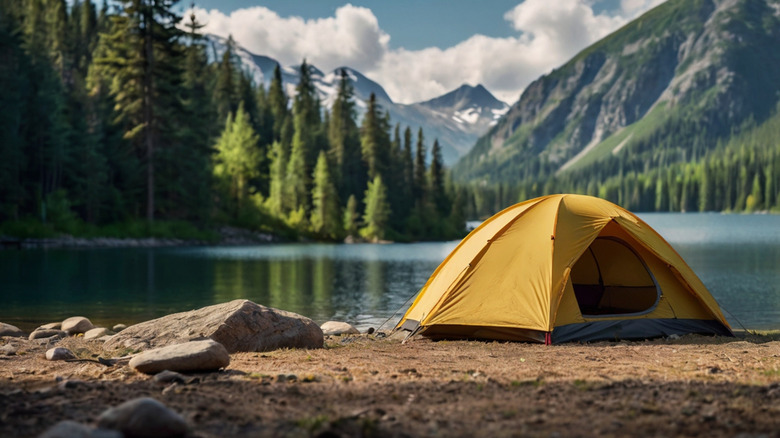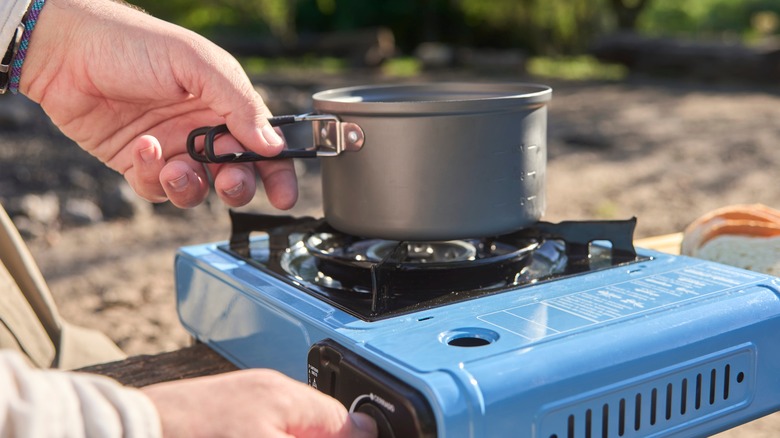Do This Before Camping Trips To Avoid Packing Less Useful (And Potentially Dangerous) Gear
In 2024, around one in four Americans (over 80 million of us!) went camping, with many spending the night under canvas for the first time, according to The Dyrt. While languid days and star-filled nights are appealing, the idea of camping can also be overwhelming. Luckily, there are steps you can take to make tent camping less intimidating, from choosing the right campsite to creating a gear checklist. Another way to set yourself up for success is to test and inspect your camping gear before going into the wilderness, whether you're a first-timer or a seasoned scout.
Testing your gear helps ensure it all works properly, is genuinely useful, and that nothing is missing or potentially dangerous. First, you'll hopefully have chosen the right tent for your camping adventure, but have you tried to put it up? If not, get out into the garden or a nearby field and practice. Make sure you have all of the poles and pegs you need so your tent is safe and secure and not collapsing like a badly made soufflé. Finally, hunt down any holes or rips in the canvas or netting and patch them up to keep out the rain and mosquitoes.
Testing and inspecting your camping essentials
Next, turn to your sleeping gear. Blow up your mattress or pad and lie down on it for a while. If air starts leaking out, patch up the hole or buy a new one. Then make sure there are no holes in your sleeping bag, that the zipper works smoothly, and that it has the right rating for the season you're camping in. A summer sleeping bag won't do you much good during a Montana winter. Make sure to check out our simple tips for sleeping comfortably while camping, too.
Once you've checked everything for the sleeping portion of your adventure, move on to inspecting your other gear. Take out your stove and look for leaks in the fuel lines, valves, and connections before you fire it up. Then, cook something on it to work out how powerful it is. Nobody wants to wait an hour for lukewarm beans when you're hangry. Then, inspect your firestarter, matches, or lighter to make sure everything is dry and working.
Are your flashlights working, and do you have extra batteries? Switch them on at night and check that they're bright enough to illuminate a few feet in front of you. Finally, go through your first aid kit and make sure you have the essentials. What you need will depend on your plans, but ensure your antiseptic wipes haven't dried out, Band-Aids and bandages still have their adhesive, and any medication is not expired. Old Tylenol and bone-dry wipes are pretty useless.

